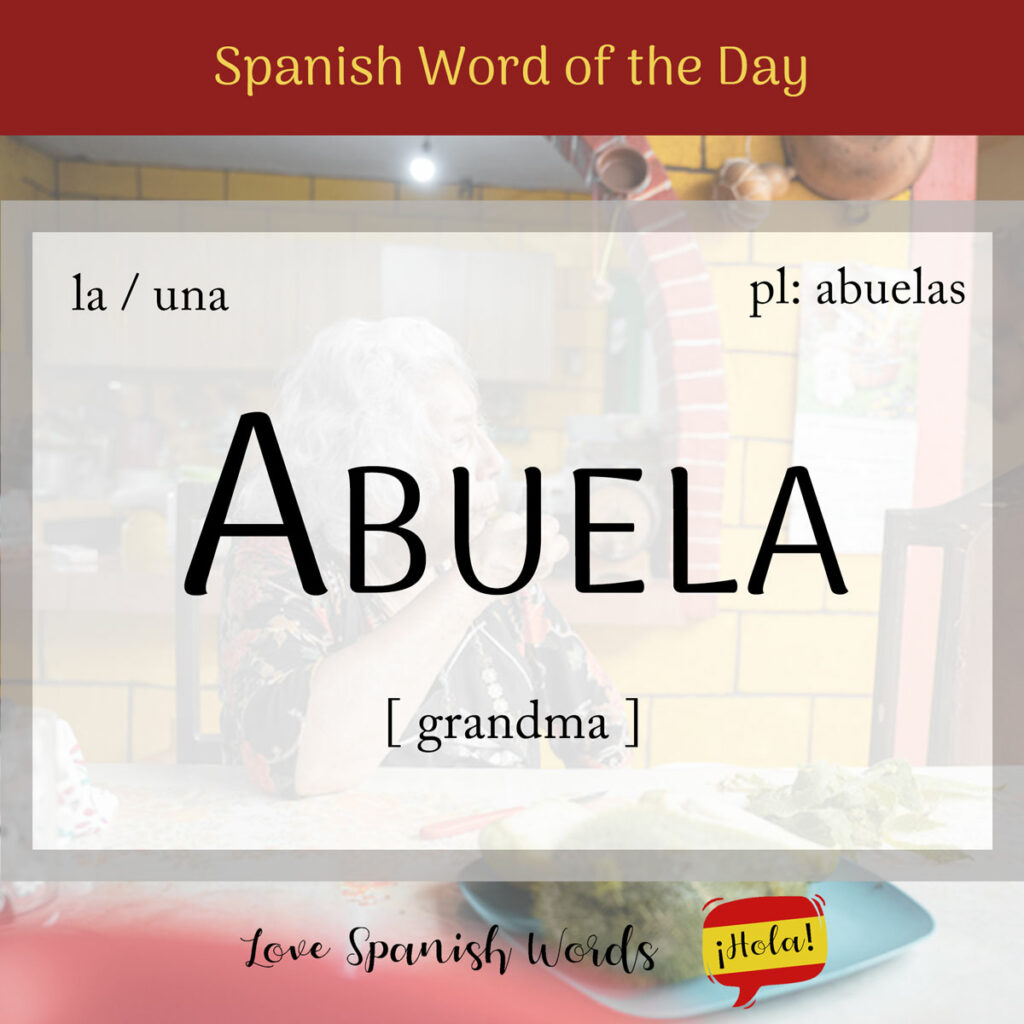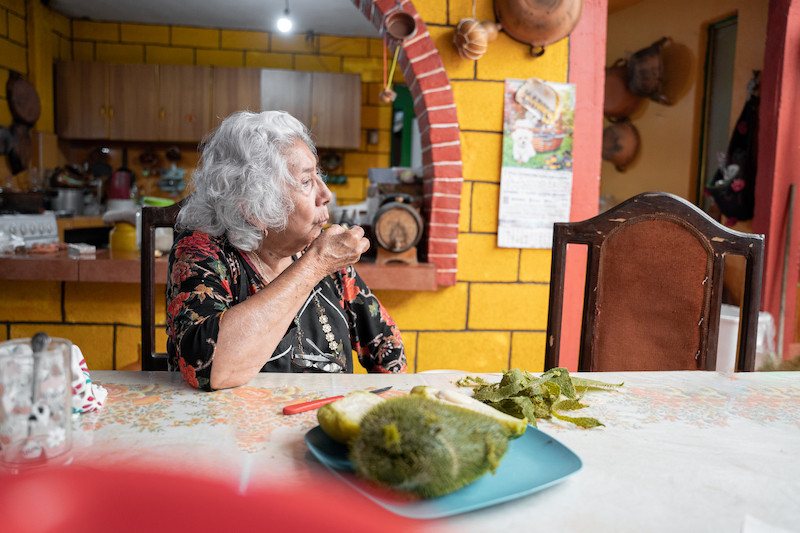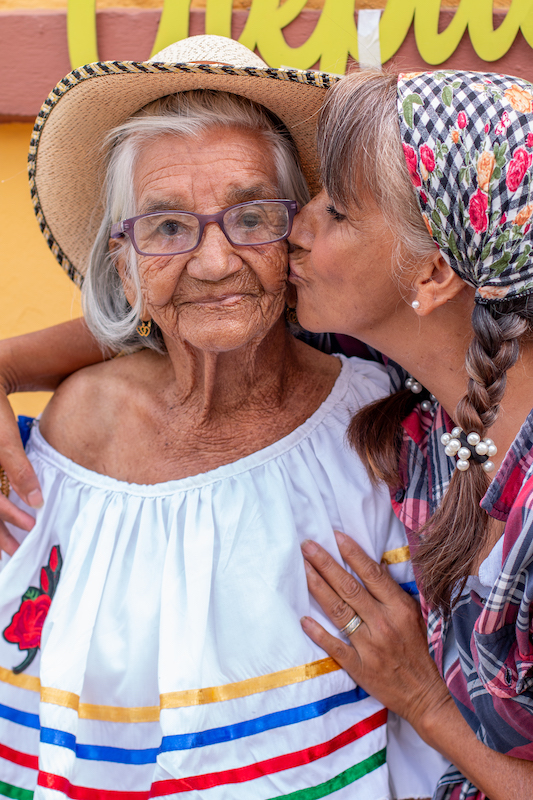When we look at the structure of the family in Spanish and Latin American culture, there isn’t a figure more important than grandma. Abuela probably derives from the Latin vulgar term aviolus with the same meaning, or avus.
Latin American pronunciation
European Spanish pronunciation

Abuela is a feminine noun, so it takes the following definite and indefinite articles:
- La abuela (the grandma)
- Las abuelas (the grandmas)
- Una abuela (a grandma)
- Unas abuelas (some grandmas)
No hay nadie como la abuela.
There’s no one quite like grandma.
We all know that grandma or grandmother is the mother of either parent of somebody. As in colloquial English, where we have the granny or nanny, abuela can be called yaya or nana or most commonly abuelita.
Abuelita is the diminutive, and can mean “little grandmother;” or “dear grandmother,” as a form of endearment, and, because a grandmother is your mother or father’s mother, she should be shown love and respect.

Quiero a mi abuelita, y la llamo todas las semanas.
I love my grandma, and I call her every week.
As well as being an important member of the family, colloquially the word abuela can mean old woman.
Está hecha una abuela.
She looks like an old woman.
Finally, abuela is a feminine noun and there is an important equivalent, abuelo, the masculine noun meaning grandfather or grandad.
- El abuelo (the grandfather)
- Los abuelos (the grandfathers or the grandparents)

Useful idiomatic expressions featuring abuela
Si mi abuela tuviera ruedas seria una bicicleta
Literal translation: If my grandmother had wheels, she’d be a bicycle
English meaning: If things happened differently, they would be different, so it’s silly to even suggest it
¡Cuéntaselo a tu abuela!
Literal translation: Tell it to your grandma!
English meaning: Pull the other one! This means you don’t believe what someone is telling you
No necesitar abuela
Literal translation: To not need grandma
English meaning: Figuratively to blow one’s own trumpet

